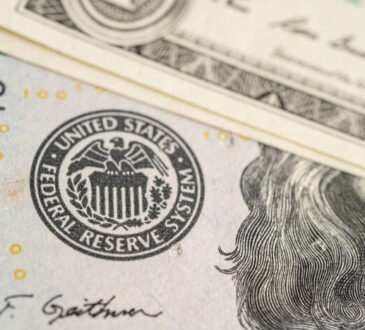
January CPI data in Japan confirmed inflation remains above the Bank of Japan’s 2.0% target. The “survived” the release, but remains around very weak levels and in FX intervention region. Today, we’ll watch some US data including consumer confidence and a policy rate decision in Hungary
USD: Shutdown Risk Creeping In?
Monday saw a moderately-sized rotation from the into European currencies, despite the generally soft risk environment. There is a possibility that we are starting to see some month-end flows, and also that the risk of a US government shutdown is creeping into investors’ radar. There are currently no indications of stress in the bond market, but it has also been reported that Congress remains very much divided on spending measures. The deadline for some departments (including Energy and Transportation) is this Friday 1 March, and the rest would shut down if no deal is reached by 8 March.
Our view for this week remains very much tied to that of a strong 0.4% month-on-month core PCE on Thursday. The prevalence of market rate expectations as a driver of US yields requires to analyse the impact of a potential shutdown on the Federal Reserve. That would need to be weighed against a potential PCE surprise (the Fed’s preferred inflation measure) and markets may not rush to price in more cuts on the back of a government shutdown.
Today, the US data calendar includes durable goods orders for January, the Conference Board Consumer Confidence index and the Richmond Fed manufacturing index. The former of the three releases should be soft, while consumer confidence is expected to have stabilized and the manufacturing gauge to have improved while staying in negative territory. On the manufacturing side, the ISM figures later this week will be watched closely and while it is not our base case, there is a chance of the gauge moving back to expansionary territory (>50) for the first time since October 2022.
We expect a stabilization in the dollar today, with some upside potential on the back of decent consumer confidence figures. We DXY moving back above 104.00 by the end of the week.
EUR: Lagarde Stays Cautious
In a speech at the EU Parliament yesterday, European Central Bank President Christine Lagarde stated that “the current disinflationary process is expected to continue” but that she and her colleagues will wait for more conclusive evidence that inflation is indeed returning to target. This is the message that the ECB has managed to convey to markets rather convincingly as of late and one that has shielded the euro from mounting evidence of sluggish growth in Germany, in our view.
has found support since the start of this week, although it is now lacking a clear catalyst for another leg higher unless US data disappoints today. The eurozone calendar only includes money supply figures today, and our expectations for a re-strengthening of the dollar around Thursday’s US PCE release makes us skeptical of the sustainability of a EUR/USD rally at this stage.
In the section above, we mentioned a rotation from USD into European currencies, which has seen Scandinavian currencies having a good start of the week. We continue to see rallies in the Norwegian krone as less “spurious” than those in the Swedish krona, due to the early transition in the Riksbank’s communication to the dovish side.
The pound is also having a decent start of the week. Domestic factors remain very much secondary, although expectations on the 6 March UK Budget may slowly start to feed into GBP price action. In this note, we discuss why we think the Chancellor has limited space for tax cuts, and what the market impact may be.
JPY: No Big Rally After Above-Consensus CPI
The yen dodged a key risk event overnight. January inflation came in higher than expected, with the headline rate declining from 2.6% to 2.2% and the core rate from 2.3% to 2.0%. This means that inflation remains above the Bank of Japan target, validating market expectations for a rate hike in the first half of the year.
Interestingly, the JPY OIS curve is not pricing more tightening this morning than before the CPI release, which probably confirms that a decline before the 2.0% would have triggered some dovish repricing. A hike in April remains about 80% priced in.
The yen rose after the release, but rather modestly considering its heavy short positioning and the magnitude of the sell-off since the start of the year. This probably raises the chances of FX intervention should US rates find more support and apply more external upward pressure on USD/JPY. After all, the cautious BoJ is unlikely to send strong signals of an earlier move than April, and our economics team is doubtful policymakers will be able to hike before June at all.
Our view remains bearish on USD/JPY for the remainder of the year, but that remains strictly tied to expectations of a decline in USD rates and the dollar, which should see the oversold yen benefit even in the event of a delay in the BoJ rate hike until June.
HUF: Central Bank Speeding Up Rate Cuts Pace
The National Bank of Hungary is scheduled to meet today. We expect an acceleration in the pace of rate cuts from 75bp to 100bp, which would mean a cut to 9.00%. Headline inflation fell by 1.7ppt to 3.8% year-on-year in January, which means that inflation fell within the central bank’s tolerance band for the first time since March 2021. And we see improvement in other domestic economic data as well. Moreover, seems stable enough for the NBH to increase the pace of rate cuts, in our view.
Financial markets are pricing in a roughly mixed probability of between 75bp and 100bp rate cut for today’s and next meeting. We believe expectations are tilted more towards 100bp, but would still expect a lower IRS curve at the end of the day in this scenario, especially at the short end of the curve. The terminal rate market sees slightly below 5% at the moment, but we still expect the market to be open to pricing in a bit more – although we don’t believe the NBH will ultimately deliver such rate cuts. We see EUR/HUF slightly above 390 at the end of the day. However, for both rates down and EUR/HUF up we see limited movement due to stretched market pricing and for the market this may be an interesting entry for rate payers at the front end of the curve or long HUF later after the decision.
Disclaimer: This publication has been prepared by ING solely for information purposes irrespective of a particular user’s means, financial situation or investment objectives. The information does not constitute investment recommendation, and nor is it investment, legal or tax advice or an offer or solicitation to purchase or sell any financial instrument. Read more



